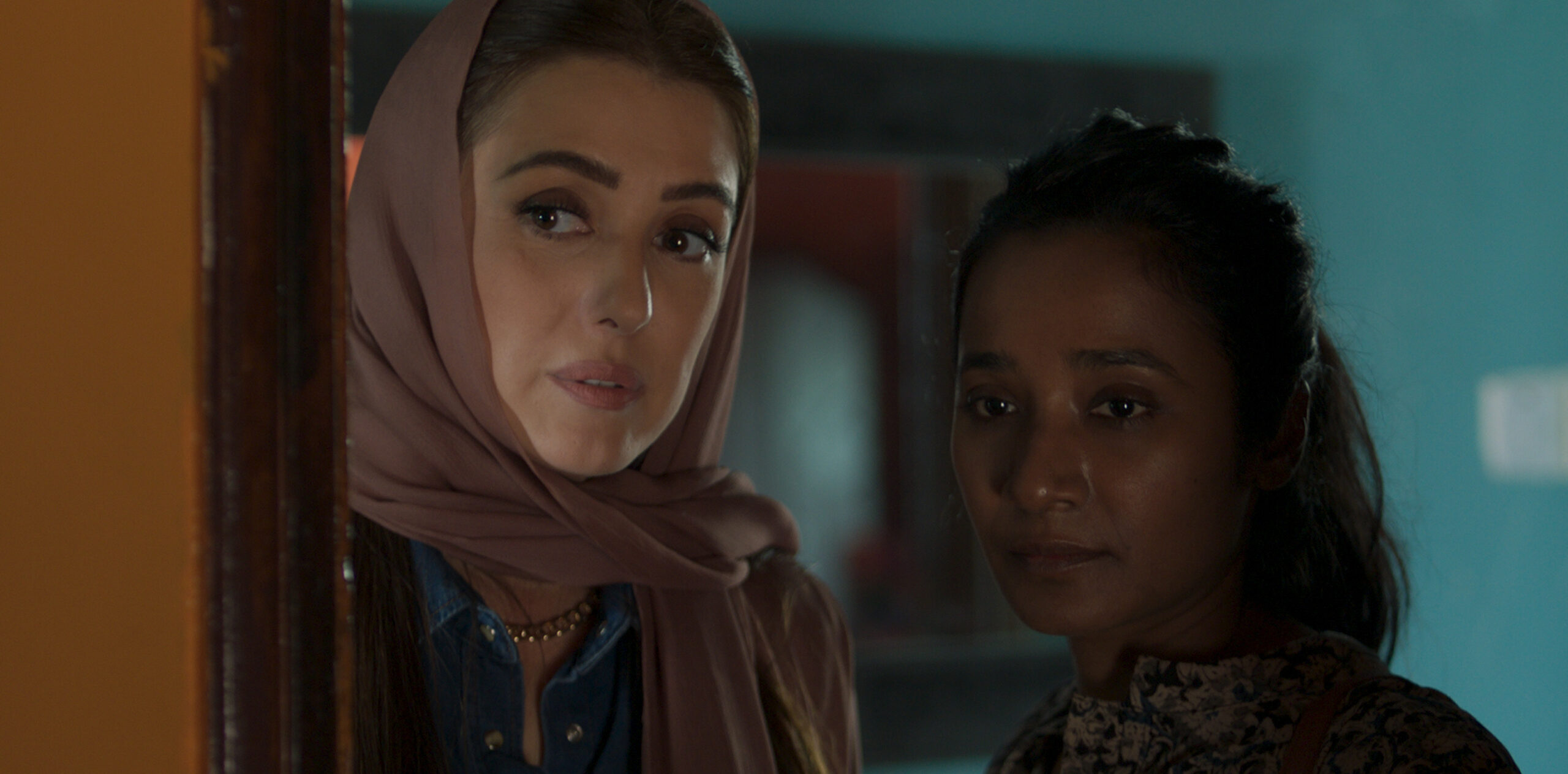YELLOW BUS: An ode to grieving mothers

There is no pain like the pain of a mother who has lost her son or daughter, especially if that child was lost in an accident due to negligence. And the pain is amplified two-fold if the mother finds herself in a position in which she must seek justice for her dead child or prove that her child’s life matters just as much as anyone else’s.
As she fights for her child’s rights, she grapples with the immense and devastating pain of loss, seeking healing, vindication, and closure in her crusade to do right by her child even after their passing.
This is the case in OSN’s first original feature, YELLOW BUS by Wendy Bednarz, which was commercially released in Saudi Arabia on May 16th, and snagged the top prize at South Africa’s Joburg Film Festival, marking its first award in a festival tour that started with a banging world-premiere at the Toronto International Film Festival.
In the film, which is set in the scorching heat of the Arabian Gulf, Tannishtha Chatterjee skillfully portrays Ananda Ishwar — a mother shattered by the harrowing fate that befalls her six-year-old daughter, Anju, who is accidentally left behind on a school bus, leading to her tragic death.
We see Ananda’s journey through the different stages of grief, enduring severe emotional turmoil as she seeks justice for her dead child and refuses the blood money offered by the school authorities in an attempt to silence her and her family.
Driven by her maternal instincts and desire for revenge, she goes the extra mile to seek her daughter’s rights, trying to meet all those involved in the accident and going to places she never thought she would go.
However, her external battle is only a mirror to her internal battle, which adds a layer of complexity to the narrative and sends an ode to all grieving mothers who have had to go through similar pains to uncover the truth about their children’s deaths.
On the other hand, Mira, the school principal, represents the institutional response to the tragedy. Played by Syrian megastar Kinda Alloush, Mira is a complex character with human flaws who tries to save her school from scandal by compensating Ananda’s family but also feels deeply guilty for Anju’s death.
As the film progresses, Mira, who has a troubled relationship with her daughter and also has a hard time with her duties as a school principal, tries to fill in the void and becomes a maternal figure to Ravina, Ananda’s surviving daughter, perhaps as a way to relieve herself from her unbearable guilt of being responsible for Anju’s death after Ananda unintentionally neglects her as a result of her singular desire for retribution.
This blurring of the lines between victim and perpetrator highlights the universality of grief and the shared humanity that transcends the confines of their roles. We see Mira and Ananda as two women from two different cultural backgrounds who have all the reasons to stay enemies and are finally united by this sacred thing that is the heart and essence of our humanity — motherhood.
Ultimately, the film is a powerful testament to the resilience and strength of mothers, who must navigate the uncharted waters of grief and loss. It is a film that resonates with the audience, leaving a lasting impression and a deeper understanding of the complexities of motherhood, grief, and the pursuit of justice.
YELLOW BUS is now playing in the following cinemas across Saudi Arabia: AMC Cinemas (Azizia Plaza Cinema and Gallery Cinema), Empire Cinemas (Abha Cinema, Andalus Mall Cinema, and Khobar Cinema), Muvi Cinemas (Mall of Dhahran, Al Ahsa Cinema, Aziz Mall Cinema, Mall of Arabia Cinema, Haifa Mall Cinema, The View Cinema, Salam Mall Cinema, and Park Avenues Riyadh), Vox Cinemas (Front Mall Riyadh), and Grand Cinemas (Al Ahsa, Obhur, and Taif).



